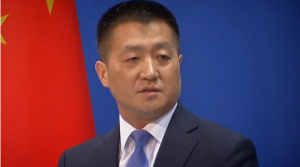
(Reuters) — China on Wednesday (April 6) hit back at accusations from a Philippine senator, who said that Chinese hackers were likely to have pulled off one of the world’s biggest cyber heists at the Bangladesh central bank.
Unidentified hackers infiltrated the computers at Bangladesh Bank in early February and tried to transfer a total of $951 million from its account at the Federal Reserve Bank of New York. All but one of the 35 attempted transfers were to the Rizal Commercial Banking Corp (RCBC), confirming the Philippines’ centrality to the heist.
Most transfers were blocked, but a total of $81 million went to four accounts at a single RCBC branch in Manila. The stolen money was swiftly transferred to a foreign exchange broker and distributed to casinos and gambling agents in Manila.
Senator Ralph Recto cited the network of Chinese people involved in the routing of the stolen funds through Manila.
“If the relevant side, no matter who they are, tries to make some accusations, they must provide some factual evidence instead of using (words like) ‘maybe, perhaps’ or making other guesses like that. This is extremely irresponsible, and not at all beneficial to cyberspace cooperation in the international community,” Foreign Ministry Spokesperson Lu Kang told media during a regular news briefing in Beijing.
Recto said he couldn’t prove the hackers were Chinese, but was merely “connecting the dots” after a series of Senate hearings into the scandal.
Lu also defended the start of operations for a lighthouse on an artificial island under in the disputed South China Sea. China has begun operating a lighthouse on one of its artificial islands in the South China Sea near where a U.S. warship sailed last year to challenge China’s territorial claims.
“I want to say that China has actually consistently been engaged in supplying more public products and services for navigating in the South China Sea region. This is for the sake of guaranteeing freedom, safety and convenience for navigation. It is for trade and commerce activities of countries in the region, as well as for commerce activities of other countries outside of this region that are passing through,” Lu said.
China’s transport ministry held a “completion ceremony”, marking the start of operations of the 55-metre (180-ft) high lighthouse on Subi Reef, where construction began in October, state news agency Xinhua said late on Tuesday (April 5).
China claims most of the energy-rich waters of the South China Sea, through which about $5 trillion in ship-borne trade passes every year. But neighbours Brunei, Malaysia, the Philippines, Taiwan and Vietnam also have claims.







